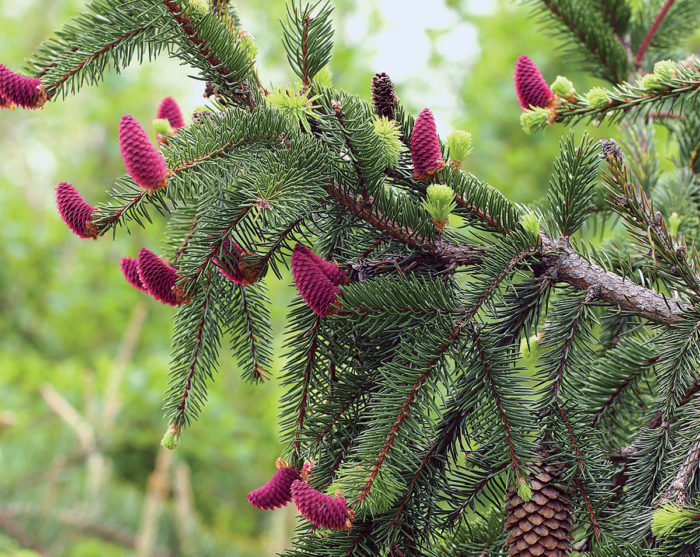
White skunk cabbage
Name: Lysichiton camtschatcensis
USDA Hardiness Zones: 5 to 9
Size: Up to 3 feet tall and wide
Conditions: Partial to full shade; moist soil
This is the Asian counterpart to our native skunk cabbage. If you plant this perennial in a mucky boglike environment, it will be happy and long-lived. In early to midspring, white skunk cabbage produces large conical green spadices hooded by a white spathe. Soon after blooming, huge rosettes of large leaves are produced. In midsummer, these incredible leaves, unfortunately, must be cut down due to their unsightly appearance.

Stachyurus
Name: Stachyurus praecox
Zones: 6 to 8
Size: 6 to 10 feet tall and wide
Conditions: Full sun to partial shade; acidic, moist, well-drained soil
Stachyurus is in its full glory for midwestern gardeners in late winter to early spring. Michael Dirr considers it to be one of the finest winter-flowering shrubs, and I overwhelmingly concur. It has elegant vaulting branches that form stiff arches, and in late winter, the bare stems are covered with 2- to 3-inch-long pendulous racemes of pale yellow flowers. Plant this beauty within sight of your home so that you can be drawn out into the garden to savor its incredible beauty and charm when in flower. I love underplanting stachyurus with hellebores (Helleborus spp. and cvs., Zones 4–9).

‘Acrocona’ Norway spruce
name: Picea abies ‘Acrocona’
zones: 3 to 8
size: 20 feet tall and wide
conditions: Full sun to partial shade; well-drained soil
This spruce has to be on my top 10 list of all-time great conifers. It has a compact, slow-growing, irregularly pendulous form. But spring is when ‘Acrocona’ truly shines. In my garden, it glows like a beacon of light when it produces its showy, immature purple-red cones. A dwarf cultivar of Norway spruce, it will eventually mature to 20 feet in height, but only after 10 to 15 years. Its dark evergreen needles and broad, spreading form make ‘Acrocona’ Norway spruce an ideal screening or boundary plant.

Variegated rose of Sharon
name: Hibiscus syriacus ‘Purpureus Variegatus’
zones: 5 to 9
size: 4 to 8 feet tall and 4 feet wide
conditions: Full sun to partial shade; well-drained soil
This variegated wonder is a gorgeous native shrub from India and China. It’s not often planted in American gardens, which is truly unbelievable to me because it has such beautiful foliage and it’s undemanding in its horticultural needs. The maroon flowers are gorgeous, too, although smaller than a typical rose of Sharon. The flower is so unusual that it begs you to stop and examine its intricate beauty. I like to pair this shrub with ‘Jungle Beauty’ daylily (Hemerocallis ‘Jungle Beauty’, Zones 3–10) because the blossom color is so similar.
Barbara Weirich gardens extensively on her 5-acre property in Benton Harbor, Michigan.



















Comments
Log in or create an account to post a comment.
Sign up Log in